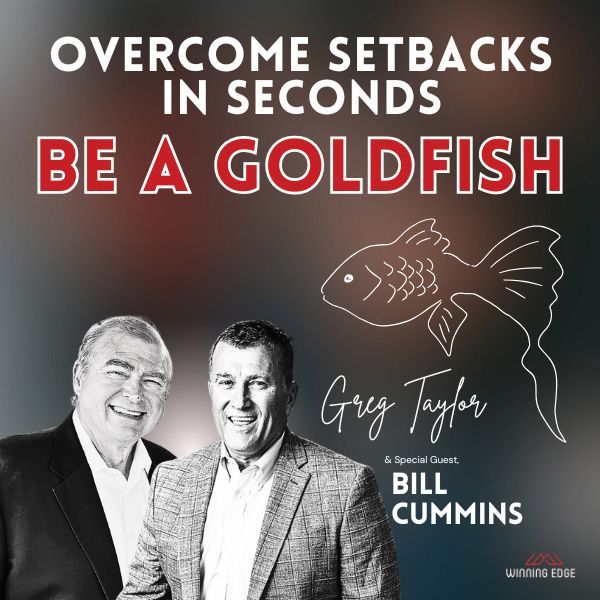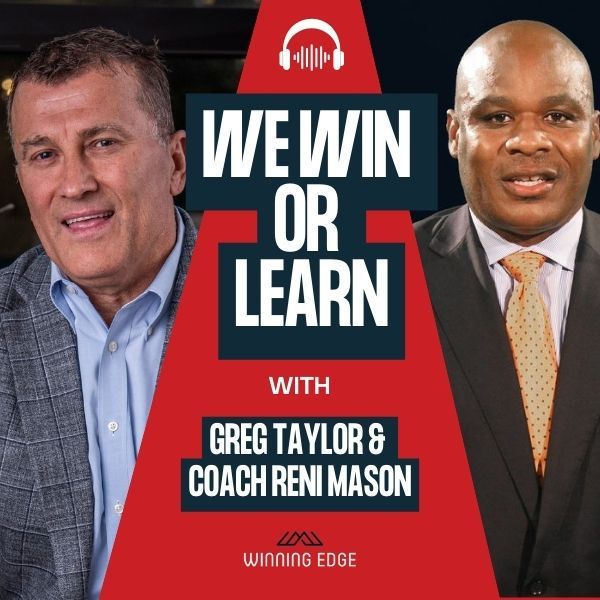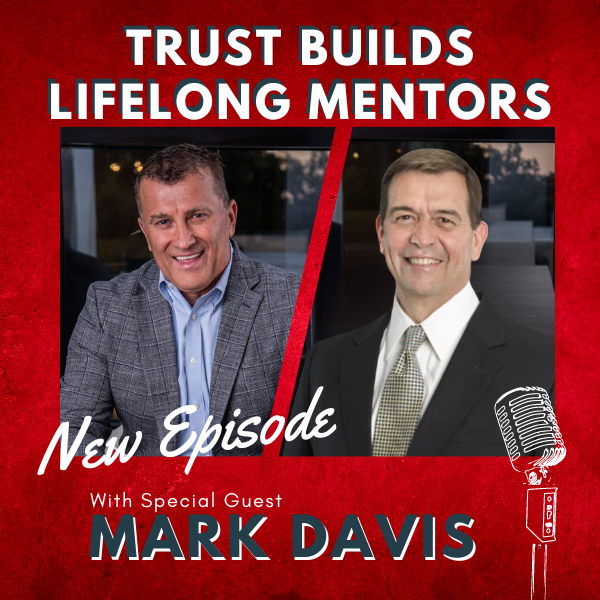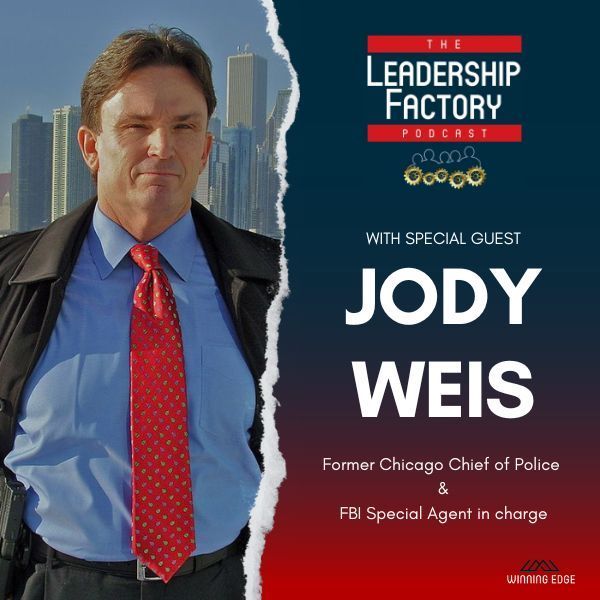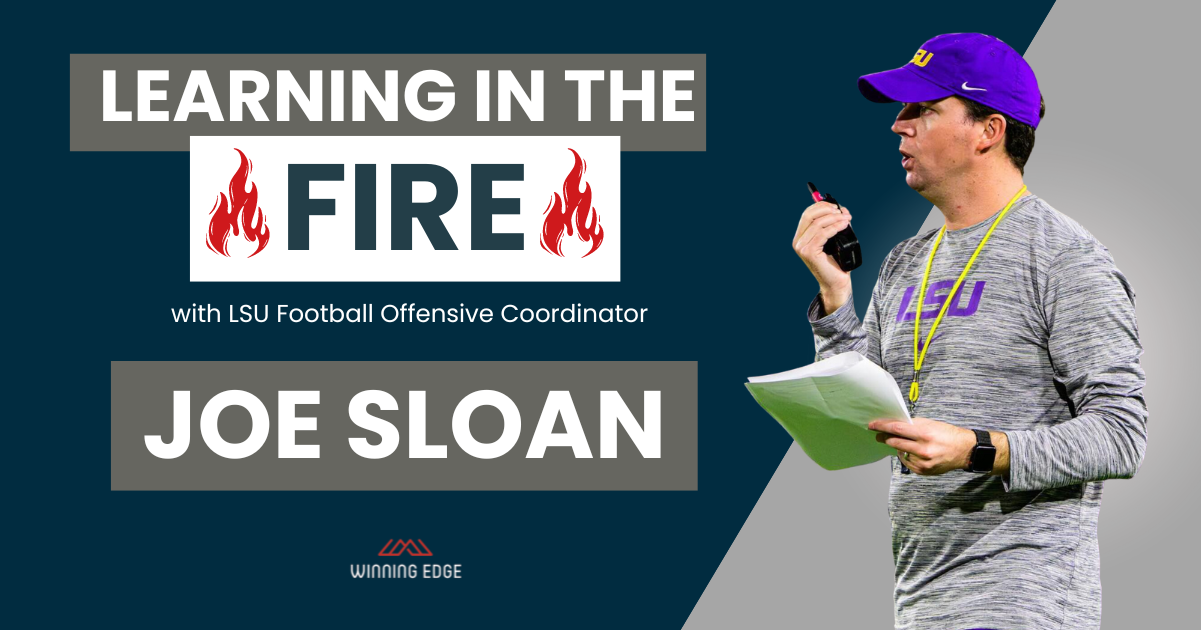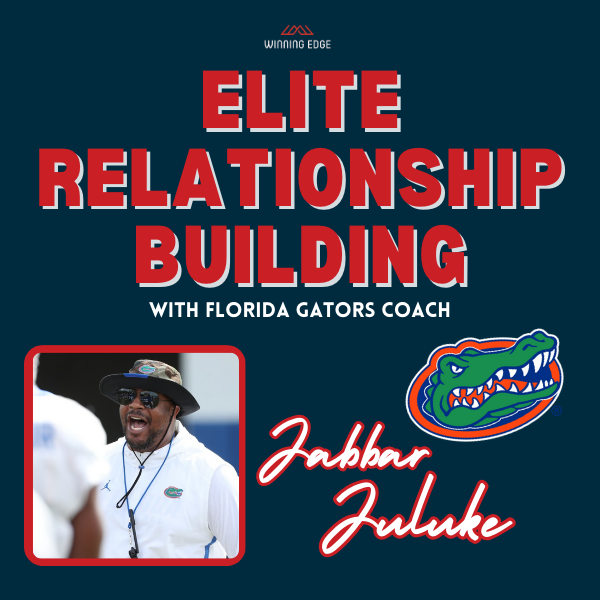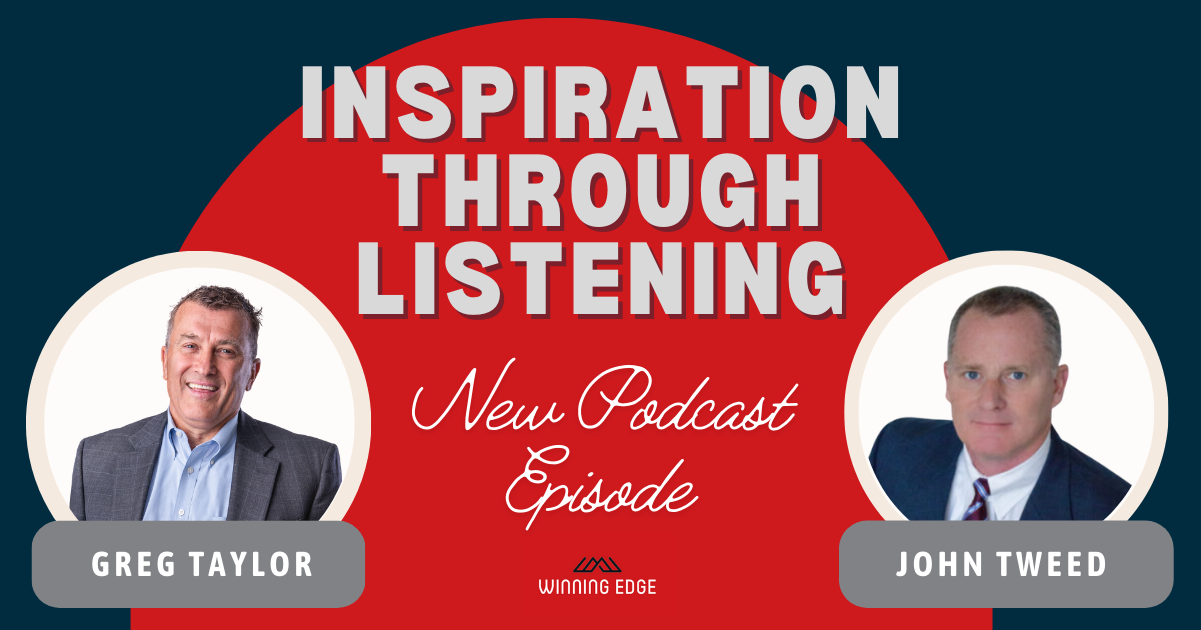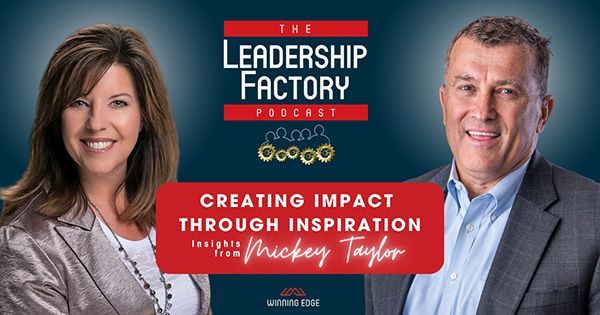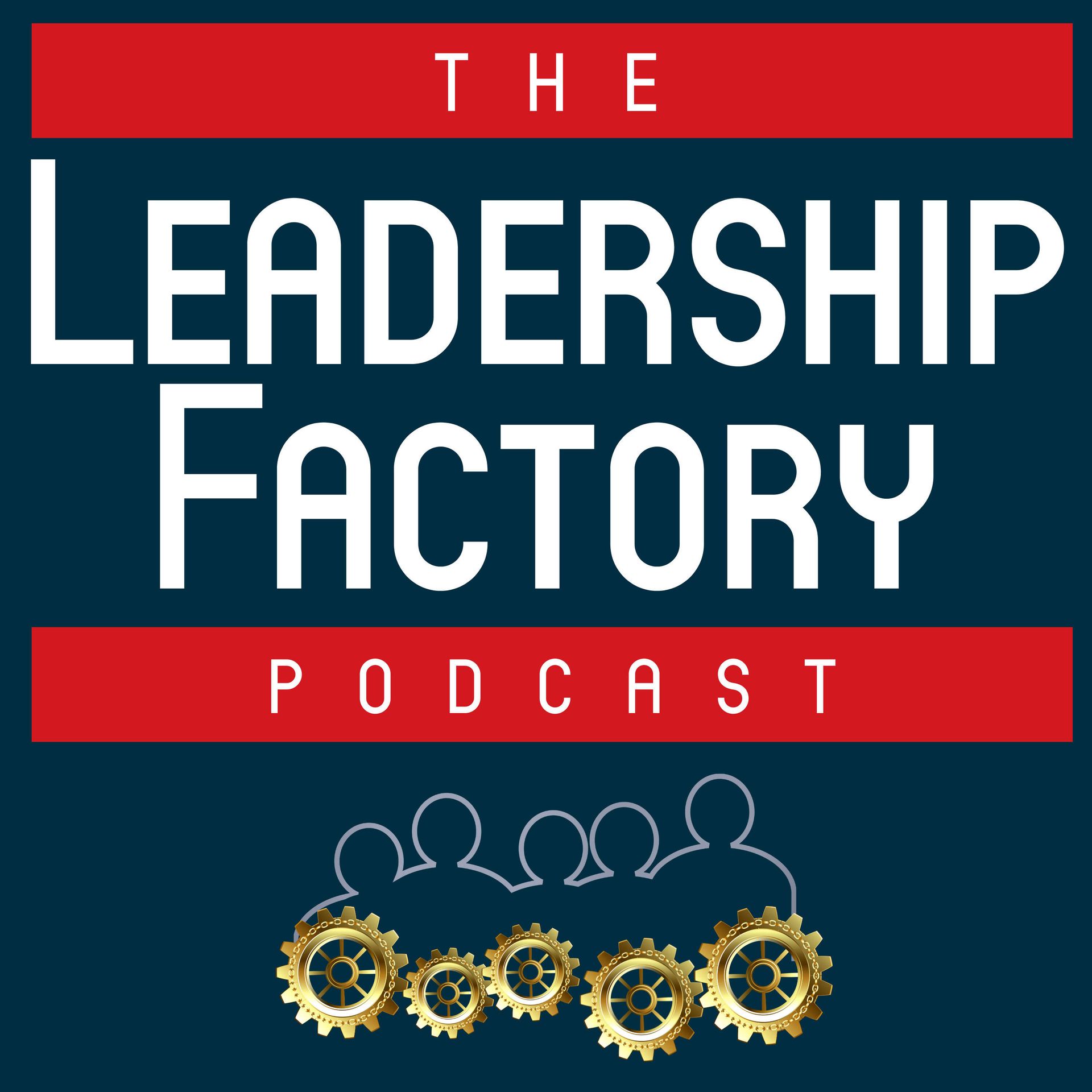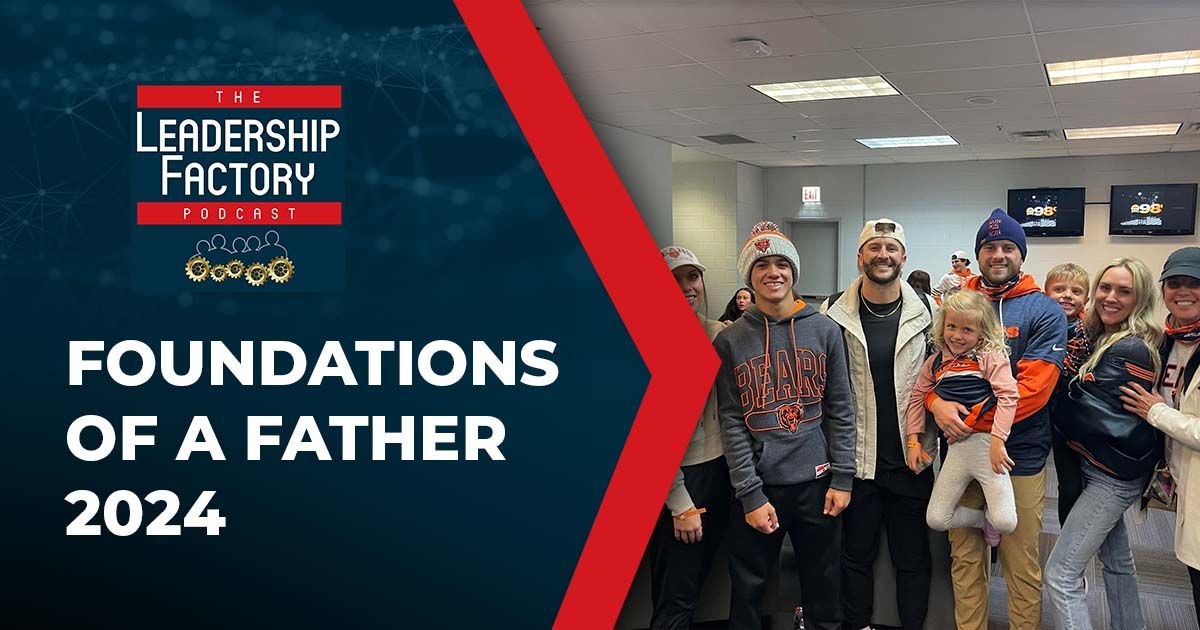
Struggling to be a good dad? Join Greg Taylor as he dives deep into the complexities of fatherhood, offering a raw and introspective look at his journey as a dad. He shares personal stories about his relationship with his father and grandfather, emphasizing the importance of forgiveness, honor, and avoiding anger. Greg also introduces the concept of the “50-20 Vision,” a powerful reminder that regardless of past mistakes, you have the power to become the best father you can be. This episode is a poignant and inspiring exploration of what it means to be a father in today's world.
---
Listen to the podcast here
Foundations Of A Father 2024
Introduction
Did you have a good dad? Was your dad present in your life? Did your dad show up at the events in your life? How are you doing as a dad? Have you buried the hatch with your dad? Are you honoring your dad, or did you have a person, not your father, who filled those shoes for you? For the next 30 to 45 minutes, I’m going to tell you my story of how I connected with my grandfather, my father, and my son so I can be a part of the solution and instead a part of the problem.
The end game to being a father is how we build generational dynasties. I’m going to give you some tips and help you with how to do that. If you’re already doing that, go pass the word around. Let’s connect together and have a community that helps other fathers build generational dynasties because we want to be a part of the solution. That is not the problem. Let’s go ahead and address the elephant in the room and take a little pressure off me. I am not perfect at this.
I’ve struggled. I’ve been a horrible father. I’ve been an improving father, and I’m starting to gain some traction. Always remember, it’s never too late. Fathers, you cannot build your best life for your children because I know that’s in your heart and mind until you have a meaningful foundation and a consciousness of how your behavior affects your child.
Let’s talk about some stats. How important is a father? This information is from the America First Policy Institute from an article of May 30, 2023. Children who feel closeness to their father are 80% less likely to spend time in jail. Seventy-one percent of teachers and 90% of law enforcement officials state that the lack of parental supervision at home is a major factor that contributes to violence in schools. Seventy-five percent of adolescent patients in substance abuse centers are from fatherless homes.
In a study of 56 school shootings, only ten of the shooters, 18% were raised in a stable home with both biological parents. Eighty-two percent grew up in either an unstable family environment or without biological parents together. Are we starting to see the root of our problem? Fathers are absent from 80% of the single-parent homes. Seventy percent of juveniles in state-operated institutions come from single-parent homes.
Are we starting to understand the problem? In a study of 75 juvenile delinquents, 66 experienced fatherlessness, 20% had never lived with their father, and 25% had an alcoholic father. Now, do we understand the importance of being a dad and the importance of this show in the next 30 minutes? Let’s beat this drum.
I’m going to take you on a journey on how I learned the valuable lessons of fatherhood by understanding my dad and his dad’s relationship, my dad and my relationship and the relationship between myself and my kids. Five principles. 1) My dad’s journey with his dad, forgiveness. 2) My journey with my dad, honor. 3) My journey with my sons, don’t bring them to anger. 4) 84 rule, go back to the future. The fifth one is the closing hope, the 50/20 vision.
As I go through each point, I want you to think and visualize your situation. How can you optimize these relationships? It is very important to make your generation and the generations after you greater. We are working on building the blank dynasty one generation at a time. Fill in that blank. We are working on building the Taylor dynasty one generation at a time.
Forgiveness
Key point number one, my dad’s journey with his dad, forgiveness. Scripture, Ephesians 4:31-32, “Get rid of all the bitterness, rage, and anger, brawling, and slander, along with every form of malice. Be kind and compassionate to one another, forgiving each other, just as in Christ God forgave you.” Here’s the story. My brother and I were on top of a house roofing the house. My dad was up there and his dad was up there.
My grandfather was sitting there, complaining that my brother and I didn’t know how to hammer anything. He said something funny, and we all started dying laughing. He said, “You’re just like your dad. He’s never had anybody show him anything.” We all stopped and we looked at each other. We all started laughing because he didn’t understand what he said because he was saying, “I never taught your dad anything.” I don’t know if he picked it up or not. I didn’t understand what I understood back then at 12 and 13 years old.
The only thing I understand is how my dad reacted to it. I don’t know if you’re the son or the dad or the grandfather, but there are three relationships working here. My dad didn’t budge. He never said a word. He just laughed. I laughed and my brother laughed. We didn’t think anything about it. Also, I heard my grandfather say to my dad many times, “You’re a dumb ass stupid educated fool,” because my dad was highly educated, being a principal board of a high school.
He would always called him a stupid educated fool. Once again, my brother and I never reacted to it because my dad never reacted to it. Have you been in a situation where your grandfather got on your dad and your dad reacted and he did the same thing to do? That’s what I’m talking about. We got to stop that. We got to get rid of all the bitterness, the rage, the anger, and the unforgiveness. We got to get ready.
Somebody’s got to do that. In my life, I didn’t have to do that. My dad did that. Now, how did he do that? I don’t know. I asked him a question months before he passed away. I said, “Dad, why didn’t you become your dad?” He looked at me. He had a little tear coming in his eyes and said, “I just knew I wasn’t going to do what he did. I didn’t know what to do, but I knew I wasn’t going to do what he did.”
The legacy that my dad left in me was to show up. Every time my wife and I go watch our grandkids do something, we look at each other and say, “Show up.” Is that what you need to hear? Do you need to show up because there’s pain and agony in your heart from the past? You have kids and grandkids. Do what my dad did. Show up.
The Power Of Honor
Key point number two, my journey with my dad, the power of honor. Ephesians 6:1-3, “Children obey your parents in the Lord, for this is right. Honor your mother and father, which is the first commandment with a promise so that it may go well with you and you may enjoy a long life on earth.” At 31 years old, I read this scripture, and I started thinking about it because I had gone through a process with my parents.
I went from fear all the way up to probably about twenty, then I started to respect them from about 20 to 31. After 31, I read this verse. I started to honor them. At 40, nine years elapsed, and I started to understand that I didn’t honor my parents. I lied. I conned. I wanted what I wanted. I was one of those kids who felt against their parents, but I learned that if I honor my parents, I will have a long life. Being a selfish person, I have no advantage if I don’t honor my parents.
I had good parents, so it’s easy for me to say, “Honor my parents.” You may not be like that, but I saw my dad, which he had a great mother, but his dad was an alcoholic. He forgave his dad somehow. He started to honor his dad. He honored his dad just by not saying anything. He always showed up for his dad, too, as he showed up for his mom. I wrote them a letter. I wrote my mom and dad both the letter because I sold myself, I have to honor my mom and dad.
I’m 40 years old. I wrote them both probably a 4 or 5-page letter. I laid down the things, “Here’s all the great things you did for me. Here are the bad things. Please forgive me. I’ve learned. As the I get older, I know there’s power and honor. Honor is a choice and I choose to honor you, mom and dad.” There was something that broke in our relationship because the conversations that I had with my mom and dad both changed. When you honor somebody, based on your choice, something’s going to change. I don’t know what it is, but I guarantee you it will change. Honor your mother and father.
Don’t Bring Them To Anger
Key point number three, my journey with my sons, don’t bring them to anger. Ephesians 6:4, “Fathers, do not exasperate your children. Instead, bring them up in the training and instruction of the Lord.” Don’t embedder your children, meaning don’t them to anger. Don’t frustrate them. Don’t make them mad.
There’s a fine line between discipline and aggravation or bringing them to anger. We all do discipline out of love. Not that we’re saying, “I love you so much, I’m going to discipline you.” Discipline comes in all forms. We’re not going to get into that discussion, but you can’t bring them to anger. You’re frustrating them. You’re picking at them. You’re saying bad things to them because you’re aggravating them.
There's a fine line between discipline and exasperation or bringing them to anger, because we ought to do discipline out of love.
I discipline my kids, but I always let them know, “I’m disciplining you because I love you.” I don’t know if they felt that love or not, but my mom did that for me. When she disciplined me, she told me afterwards, “I’m not mad at you. I’m mad at the behavior.” See the difference there? When you discipline someone, it’s about the behavior. If the person’s good, I love you, meaning I don’t want you to be angry with me. I want you to be focused on changing your behavior.
One day, I took my sons out for supper and I asked them, “Tell me what you think about your dad,” because I was trying to address this problem. Fathers, don’t exasperate your children. I had to figure out what do my sons think about me. They’re like 12 or 13 years old. They both looked at each other. I knew when they looked at each other, that means, “Dad’s crazy. What is he trying to tell us?”
It probably took me five minutes to get an answer out of them. I told them, “This is a safe place. Nobody’s in trouble. I want to get better for you.” I told myself in my heart and my mind, “I’m not as good as I need to be. I know I can get better. I know I need to stop bringing you to anger. Tell me what you need from me.” They both said, “Dad, you got to stop yelling at us at our ball game.” I said, “Okay, I can do that.”
When I yelled at them at our their ball game, that embarrassed them. That exasperated and frustrated them. That made them feel less. My journey is to build them up, but that action that I was doing that I thought was right was tearing them down. You go have a real conversation with someone. How do I make you feel? Tell me how you make me feel, but you have to be bold enough to stand there and take it. You can’t deflect. You can’t say this. You got to say okay.
I’ve told them, I say, “I can’t promise you that I won’t do that, but let’s do this. I’ll yell out 4:13.” That means Philippians 4:13, “I can do all things in Christ who strengthens me.” I’m trying to explain to you I see that you have more than you’re giving because I want you to give your all. Don’t care if you’re the best or worse. I’m worried about you giving your all, so I would yell 4:13.
There were some times. That’s another story. I put myself in time-out. I would walk away or I’d set up at the top of the stadium. I get away from everybody because I know something inside of me, the competitiveness that’s in me. I want to say something, but I can’t say anything because they told me not to do that. That exasperates me and frustrates me. That makes me less. “Support me, honor me, and build me up, dad.” That makes me more.
Did you get all that? Don’t bring your children to anger. I don’t know where you’re at. Love your kids. You have to hold them accountable. You have to get excellence out of them. You have to get the most out of them, but you have to understand each child’s different. You have to understand what frustrates them and what inspires them.
Each child is different, so you have to understand what frustrates and inspires them.
Back To The Future
Key point number four, the 84 rule, back to the future. One of my mentors, Sir Greg, told me, “When you make a tough decision in your life, you got to go back to when you’re 84 years old. You’re sitting there in a rocking chair. The only thing you can do is think.” You’re thinking about, “I’m so glad I did what? On the right, the right thing to do. On the left is my oh crap bucket.” It’s like, “I wish, I should have, or could have, or would have done that.”
You go through all these thoughts because my dad was sitting on a couch at 84 years old and he couldn’t move. He was probably thinking about all those decisions that he had made. I was just sitting there, saying, “That’s heavy because now that I’m getting older, I have regrets in my life. I can’t go back and fix them, but I can get better.”
When you make a key decision, you have to go back. What do you want your kids to say about you when you’re 84 years old, sitting in a rocking chair? When my dad was 84 years old, I honored him. I want my kids to honor me. Greg, what are you doing about that? What are you doing about cleaning out all the stuff and all that anxiety in that relationship? Are you bold enough to sit there and let them tell you how they feel so they can get that junk out of them so good things can get inside of them?
Go back to the future, meaning what do you tell yourself? When you have a tough situation with a child, how do you want to deal with that? Go back to the future and go, “I’m so glad I did this. I shouldn’t have done that.” That helps validate the decision you have to make. You have to stand on the Bible because the Bible is going to show you a way to deal with these because there are a lot of dynamics and raising children.
If you’d love to have a conversation with me, I’d love to have a conversation with you. I do coaching. I do speaking. I’d love to come to your church. I’d love to come to your company. Anything that I can do to help you deal with raising a child so you can be the very best father that you can be? I’m all in on that. The last thing on the back to the future, remember, is don’t become weary and do good for the proper time. You shall reap a harvest if you don’t give up.
50-20 Vision
My closing statement is 50/20 vision. Genesis 50:19-20, “Joseph said to them, his brothers.” He had eleven brothers that threw him into a pit. This is a long story. He was the youngest. They were jealous of him. The Egyptian soldiers picked him up and put him in slavery for 30 years. I’m going to make a long story short. He started interpreting dreams. He made some plays.
The King puts him as the prince over Egypt. There’s a famine in the land. This is 30 years later. His eleven brothers come with their family, which is probably over 150 people. They come to Egypt looking for food. They meet the prince. They don’t know who the prince is. The prince is the brother. When they show up, he said, “Don’t be afraid. Am I in the place of God? You intended to harm me, but God intended for good to accomplish what is now being done, saving many lives.”
He put up feed for seven years because he was told there was going to be a famine. There’s a famine for seven years. Basically, he saved the human race in that situation, but he had power over his family, who wanted to kill him. I don’t know if you’re in that situation or if you have a family member or your dad in that situation. At some point in time, you have power over people. You have power over bad choices you’ve made in the past. You got power over something or bad somebody’s done something new now.
You have the power to move forward. The 50/20 vision is it doesn’t matter what’s ever happened to you, good, bad, or ugly. God’s got a plan for you. You can become that great father. You can teach someone else to be a father. You can forgive, honor, and rise as a father. You can build that blank dynasty. You can build that Taylor generation or dynasty one generation at a time. No matter where you are, good, bad, or ugly, today’s a new day. It’s a gift. It’s a present. Open it up, and let’s see what’s in the present.
Don't worry about whatever that has happened, good, bad, or ugly. You have the potential to become the best version of yourself.
What are you going to do about the present day? Learn from the past. Don’t let it come with you in the future. Pick up what’s in the present. I can make a difference. A quick review. Forgiveness will bring solid ground for your relationships. Honor will ignite something in everyone’s spirit to be free to communicate. Anger and frustration are shaky ground and nothing can grow. Make sure you’re putting your family on stable ground by having conversations of love and kindness.
Do you have a vision of what you want the end of your life to look like? What do you want your fatherhood, grandfatherhood, grandkids, and kids to do? In Genesis 50:20, it tells you, “Don’t worry about whatever’s happened. Good, bad, or ugly. You could be the very best version of you that you can be. You can inspire your family. You can inspire yourself to become the best version of yourself that you can become.”
Thank you so much. If you’d like to connect with me, Greg Taylor, (318) 230-6481. My email is
Greg@FindYourWinningEdge.com. My website is
FindYourWinningEdge.com. Thank you so much. Go be a great father and help others do the same. Also, we fathers who get it under control have to go help these fatherless kids and see if we can fill a void for them. That’s another episode. Thank you all very much. Happy Father’s Day.

